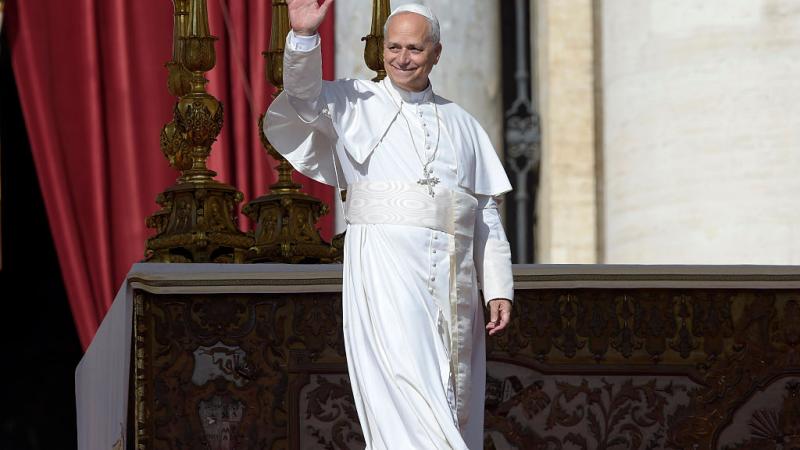Teacher fired for not using student's preferred pronouns seeks refuge in Virginia constitution
Peter Vlaming's lawyer asks Virginia Supreme Court to prevent the state's pioneering constitution from "slowly vanishing" into the less protective U.S. Constitution.
The First Amendment is not good enough for a French teacher who was fired for refusing to use a student's preferred gender pronouns. He wants his rights under the Virginia Constitution.
Peter Vlaming is seeking reinstatement to West Point Public Schools, located less than an hour from the first permanent English settlement in North America, based on the arguably stronger conscience protections in the document that served as a model for other states and the U.S. Constitution.
His lawyer tried to convince the Virginia Supreme Court in a short hearing Tuesday to restore the rights of Virginians under their own constitution, which has been "slowly vanishing" under court rulings that cede its "broader protections" to the U.S. Constitution, according to the petition for appeal.
This is a matter of "first impression" for the state's highest judicial body, Alliance Defending Freedom senior counsel Chris Schandevel told the judicial panel, which is deciding whether to accept the case for review.
The Virginia Supreme Court has never decided whether the state's free-exercise clause is "co-extensive with or more protective than" its First Amendment counterpart, or even interpreted the state's 2007 religious freedom law, he argued.
The petition says Virginia residents risk losing their rights to "the watered-down version" of the federal free-exercise clause as interpreted by the Supreme Court more than 30 years ago, when it ruled the First Amendment doesn't protect religious activity that violates state law.
That ruling, known as Smith, spurred Congress to approve the Religious Freedom Restoration Act and 21 states to pass their own versions.
Virginia is not alone among states in offering facially broader protections than the federal constitution, Schandevel told Just the News after the hearing.
But even if the state constitution is deemed no more protective than the U.S. Constitution, "this should be an easy case" for Vlaming to win, given that he was fired for what he refused to say, the lawyer said.
The teacher, who has since moved his family to France, claims that he "sufficiently alleged" the school violated his state constitutional and statutory free-exercise and free-speech rights, meaning the Virginia Supreme Court can hear the case. The defendants already failed to convince the 4th U.S. Circuit Court of Appeals to transfer the case to federal court.
When Vlaming learned in 2018 that a biologically female student was planning to identify as male, he agreed to use the student's new name but not male pronouns. This compromise did not satisfy the administration, which ordered him to refer to the student with male pronouns, even in conversations with others.
He was "fired for something he couldn't say" under his Christian beliefs and opinion that women can't become men, and the King William County Circuit Court didn't give an explanation for dismissing Vlaming's case, Schandevel told the judicial panel.
"Co-extensibility is a little bit ambiguous," and the Virginia high court has compared state to federal law in "very few places," an unidentified judge interrupted, asking the lawyer if he'll provide "research on the underlying Virginia understanding of our free speech rights" compared to the U.S. Constitution. (The virtual hearing was audio-only.)
Schandevel pointed the panel to several pages of its petition citing historical research, including by former federal appeals judge Michael McConnell, now director of Stanford's constitutional law center.
Founding father James Madison rejected George Mason's proposed word "toleration" in the Virginia Bill of Rights, claiming it "implies an act of legislative grace," McConnell wrote in 1990, when Smith was decided. The state assembly adopted a more expansive phrase: "full and free exercise of religion."
"The issues in this case are very narrow" because Vlaming was fired for his silence, meaning it should be reviewed under the most demanding legal standard, known as strict scrutiny, Schandevel said. The high court should add "some important legal meat on the bones" of the state constitution.
Asked to flesh out the meaning of "co-extensive," an unidentified judge responded that "the term has many nuances." It could mean "at least" or "exactly" as protective as the U.S. Constitution.
It's the state high court's prerogative to define what federal law means for its own constitution, Schandevel responded. He noted it has never cited two key Supreme Court rulings that limit First Amendment rights of public employees, known as Pickering and Garcetti.
















